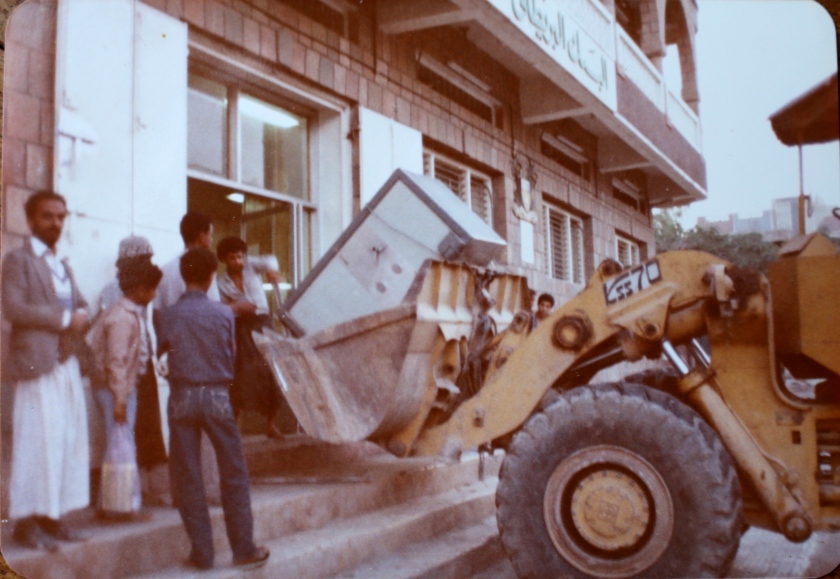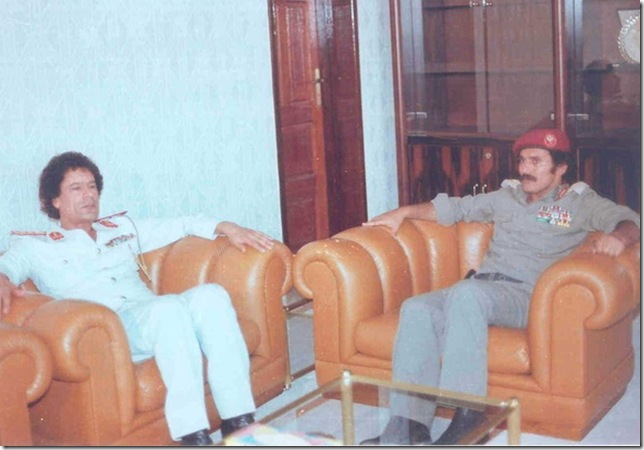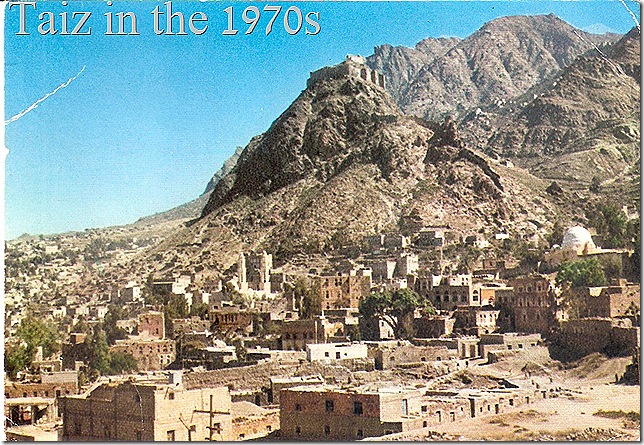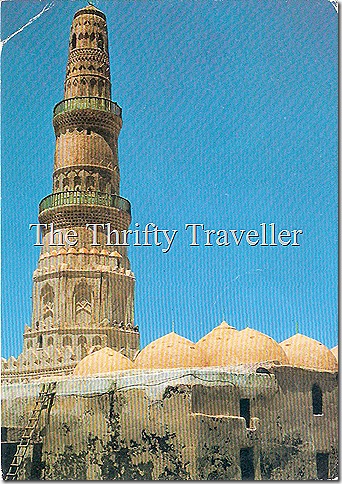
When I started my banking career back in the 1970’s, banking was still seen as a genteel, if somewhat unexciting, occupation and bankers were regarded as decent, honest and well respected members of the community like Captain Mainwaring and Sergeant Wilson in Dad’s Army. A banking crisis was something which happened when you were getting low on Rich Tea biscuits. As for bankers’ bonuses, these meant a month’s extra pay at Christmas, which we regarded as most generous.

That might have been the case in UK but overseas, the reality was rather different and when I found myself transferred to my bank’s branch in Taiz, Yemen in 1983 I was often faced with situations which were far from routine.
Handling Complaints – English Dog
At the time Yemen was always teetering on the brink of bankruptcy and the country had a chronic shortage of foreign currency . There was an official exchange rate for US$ against the Yemeni Rial, which nobody used, and there was the unofficial, black market rate which made dollars much more expensive.

Yemen also had a shortage of local teachers and the Ministry of Education employed hundreds of Egyptian and Sudanese teachers, promising them salaries in US$. Since the Ministry did not have dollars they paid the teachers the Rial equivalent and on salary day the teachers descended on the bank en masse expecting to send their money home at the official exchange rate. One month, since there were no dollars available in the country at the official rate, it was my job, as manager of the branch’s day-to-day operations, to explain to dozens of angry teachers that we were unable to sell them dollars. Heated exchanges ensued. The Sudanese on the whole were more understanding but the Egyptians were most irate. Their ring leader hurled verbal abuse at me and shouted across the banking hall that I was an “Inglizi kalb bin kalb” (an English dog, son of a dog). Charming!
The following month they tried new tactics, and the Ministry of Education sent us a letter, endorsed by the Central Bank of Yemen, instructing us to pay the teachers listed in US$ cash, and enclosing a cheque for the Rial equivalent, using the official exchange rate. Sensing victory, the hordes of teachers massed expectantly in the banking hall, only to be informed by yours truly that unless the Central Bank were able to supply us with US$ at their official rate we would be unable to comply. The usual mayhem ensued and my Egyptian friend this time accused me, at the top of his voice, of being an Israeli spy! Needless to say, the unfortunate teachers never received the dollars from us.
David the Hebrew
Not long after that episode I went round to the house of a junior colleague to drop off some papers. If I was the Sergeant Wilson of the branch, and my boss was the Capt. Mainwaring, this guy was Pike, although he was certainly not a “stupid boy”. He had different interests to me and sometimes had some surprising friends. On this occasion, there were two young Arab men sitting in his living room. They were Palestinian PLO members being trained as pilots by the Yemenis in some ancient MIGs. Now back in those days, before Camp David and Yasser Arafat’s Nobel Peace Prize, the PLO was still regarded by many as a terrorist organisation, similar to Al Qaida today; they had done some pretty dastardly deeds and it was rather disconcerting to see a couple of their guys sitting in bank property. I didn’t hang around but on my way out, one of the Palestinians fixed me with his steely eyes and asked accusingly ” David – that’s a Jewish name isn’t it?”. I stuttered out a reply ” it’s also Welsh, you know, St. David, the patron saint. And it’s an Arabic name too – Daoud”.

Some time afterwards I learned that a PLO pilot had crashed his plane at Taiz airport and died. Poor maintenance? Pilot error? Or maybe sabotage. Perhaps there really were Israeli spies operating in Yemen at that time. But I certainly wasn’t one of them!
The Case of the Shredded Travellers Cheques

I always tried to be conscientious in my banking career but one of my weaknesses was to be too trusting. In general I think it is a virtue to be trusting and unsuspicious of people but in a banking environment, when handling other people’s money, it is a bit of a liability.
When the bank finally decided to close down in Yemen we had to dispose of a lot of stuff, including a large stock of unissued Thomas Cook travellers cheques. We were instructed to shred them. We had two paper shredders in the branch, both useless, capable of shredding only one piece of paper at a time and prone to jamming and overheating. Shredding these stacks of Sterling, US Dollar and Deutsche Mark travellers cheques was taking forever. My boss took half and got his ferrash (messenger) to feed them one by one into the shredder in his office while he carried on working. Likewise, my ferrash shredded the other half in my office, in my presence, but I guess not in my line of sight the whole time. Mistake! Having these valuable cheques in his hands must have been too much temptation for one of these impoverished ferrashes. Some months later my manager called me to say that some of those travellers cheques had just been cashed in Germany even though he and I had certified that they had already been destroyed. Whoops! A bit of a black mark on both of our files but fortunately our employer was forgiving of our lapse.
Yemen certainly left an impression on me. On the whole it was an interesting experience. Could have done with some of those Rich Tea biscuits though.











